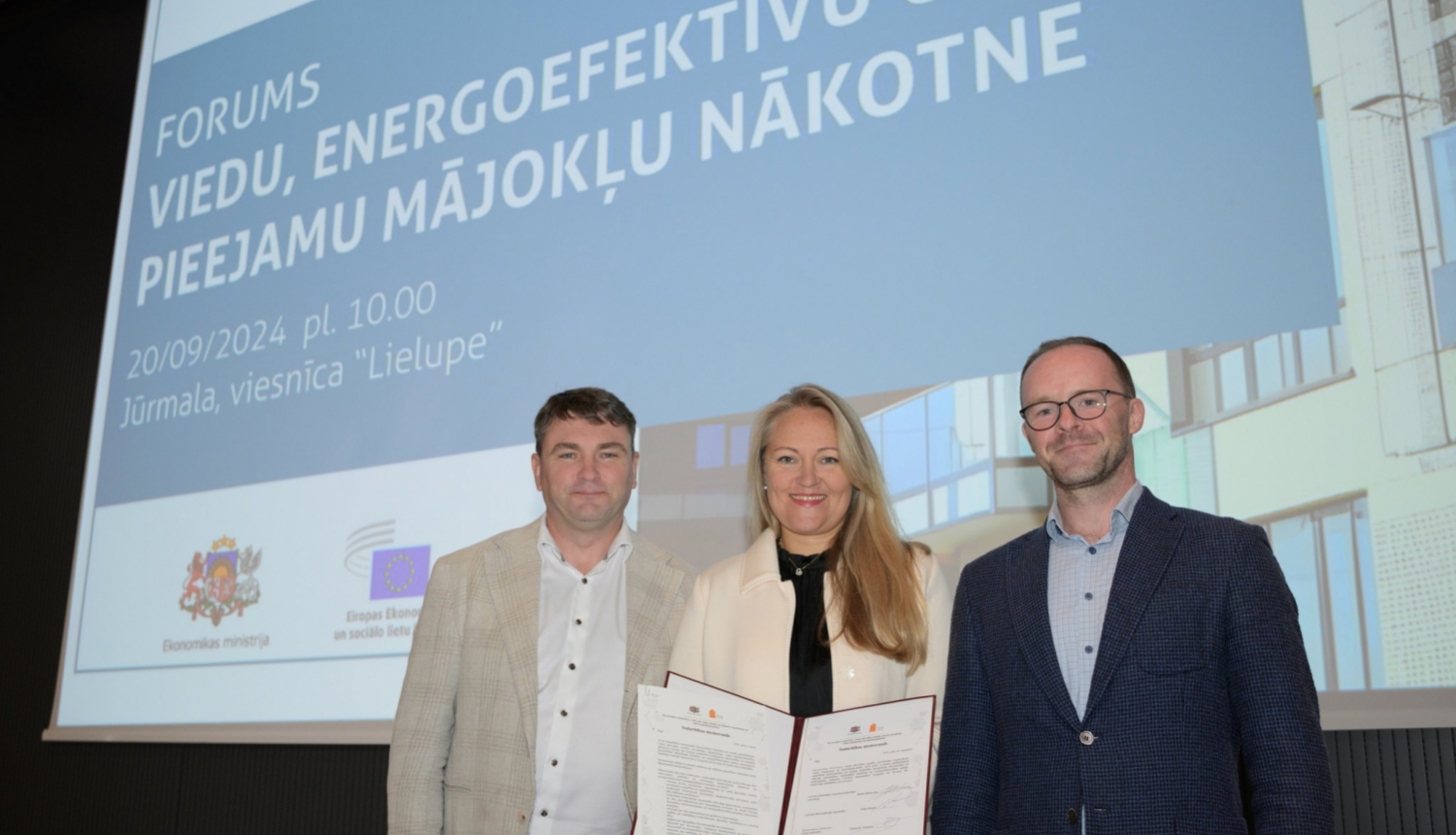Translated using ChatGPT service.
Last week, experts from EU member states, the European Commission, and Latvia gathered in Jūrmala to discuss issues surrounding housing accessibility, sustainability, financing of energy efficiency measures, as well as innovation and well-being.
Opening the forum “The Future of Smart, Energy-Efficient, and Affordable Housing,” Andris Kužnieks, Deputy Head of the European Commission Representation in Latvia, acknowledged the significance of the event, noting that it takes place at a crucial time, as the new European Commission begins its work. For the first time, the European Commission will include a new commissioner position dedicated to housing and energy issues. “Accessible housing is not only a problem for Latvia but for all of Europe, as a housing crisis has emerged across the European Union, affecting various aspects and hampering both socio-economic development and the labor market,” Kužnieks emphasized.
Edmunds Valantis, State Secretary of the Ministry of Economy, highlighted: “It is essential for Latvia to improve the residential building stock, make housing more accessible for our residents, and create a sustainable environment for business development. In the coming years, Europe aims to achieve what we believe are very ambitious goals in the housing sector—reducing average energy consumption in residential buildings, promoting the installation of solar panels, and developing a zero-emission building stock. That’s why we are offering significant support for implementing energy efficiency measures for both companies and residents.”
Baiba Miltoviča, President of the Section for Transport, Energy, Infrastructure, and the Information Society of the European Economic and Social Committee (EESC), pointed out that the issue of housing accessibility across Europe, especially after the energy crisis, has become even more pressing. “To gradually improve the housing situation in the region, it is necessary to adopt a systematic approach to housing renovation, focusing on block renovations. At the same time, cooperation at the municipal level is essential, providing support for residents in renovating their homes,” said Miltoviča.
Discussing the more effective implementation of energy efficiency measures, participants agreed that closer alignment between support measures and free market instruments is needed to expand the offering. Additionally, greater efficiency could be achieved through centralized information and educational initiatives for residents and interest groups, creating a one-stop agency to coordinate actions. Participants also stressed that the availability of private capital and private financing is vital for implementing energy efficiency measures.
The availability of energy efficiency data was another key topic of discussion. Participants emphasized that anyone planning to implement energy efficiency measures must conduct thorough initial research and calculations to understand the scope of work and the necessary resources.
Forum participants also discussed well-being, acknowledging that energy efficiency contributes to long-term well-being. It not only offers financial savings but also fosters a sense of belonging, improves communication, enhances living environments, and positively impacts emotional well-being. In terms of building renovation and energy efficiency, it was noted that many still cut corners on proper ventilation, which is unacceptable given the long-term environmental impact.
During the event, new partners joined the Ministry of Economy’s cooperation memorandum "Live Warmer," which involves state institutions, NGOs, state-owned companies, and enterprises. The new partners—the Latvian Consumer Rights Protection Association and the Latvian Builders Association—agreed to work together on achieving sustainable development goals for energy, construction, and housing accessibility, promoting economic growth in Latvia and improving the well-being of its citizens. The memorandum can be viewed on the Ministry of Economy’s website.
As previously announced, the Ministry of Economy, in cooperation with the EESC’s Section for Transport, Energy, Infrastructure, and the Information Society, organized this discussion for the second time, aiming to draw attention to issues related to housing accessibility, financing, innovation, and quality of life in housing. The recording of the forum “The Future of Smart, Energy-Efficient, and Affordable Housing” and the presentations shown during the event are available on the Ministry of Economy’s website.




